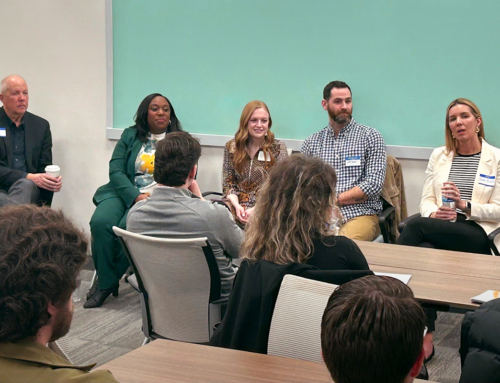Less than a year ago, most professional communicators feel that generative AI (genAI) is a game-changer. And, of course, it is.
At Vehr Communications, we are embracing AI while also seeking to fully understand how to use it to improve the work we deliver for our clients. We consider ourselves as lifelong learners (most communications professionals do) and routinely ask, “Why?” The exploration of genAI is no different.
The conversation has clearly evolved since late 2022 when ChatGPT was introduced. What began with confusion and concern has morphed into curiosity, acceptance and, in some cases, excitement.
Muck Rack’s third “State of AI in PR,” reported that:
- 3 out of 4 PR pros now use AI (nearly three times more than in 2023).
- 93% say AI speeds up their work.
- 78% report it improves work quality.
- 55% of PR pros lack AI usage guidelines from their companies (down from 72% last year, but most PR pros still work without clear direction).
At Vehr, we have “AI Usage Guidelines” in place. We also now include language in client agreements indicating, among other items, that we:
- Encourage the use of all available resources in service to clients, including genAI.
- Pledge to ensure human oversight of any AI-generated content or analysis to maintain accuracy and quality.
- Believe genAI should never be used as a substitute for human creativity, understanding, judgment and experience and, that, when used appropriately, can improve efficiency, inform strategy and inspire creative thinking.
Just recently, I read a thoughtful piece published by PRSA titled, “Making AI Your Writing Ally Without Losing Your Human Touch.” It led me to ask the genAI tool Perplexity to draft a short story — no more than 250 words — about how communication professionals’ feelings, knowledge and usage of AI has evolved since the introduction of ChatGPT. Here is what it generated:
“Sarah, a seasoned communications professional, initially viewed ChatGPT with skepticism when it launched in late 2022. She worried it might replace human creativity and intuition in her field. However, as she cautiously began experimenting with the tool, her perspective shifted.
“By mid-2023, Sarah found herself regularly using ChatGPT to brainstorm ideas and draft initial content outlines. She marveled at how it could generate multiple angles on a topic in seconds, sparking her own creativity. Her efficiency soared as she used AI to handle routine tasks like crafting social media posts and basic press releases.
“As 2024 rolled around, Sarah had become an AI evangelist within her agency. She championed the responsible use of ChatGPT and other AI tools, emphasizing how they augmented rather than replaced human expertise. Sarah now saw AI as a powerful collaborator, allowing her team to focus on high-level strategy and client relationships.”
Perplexity may be a bit enthusiastic in its storytelling. We may not all be or become “AI evangelists,” but we know that AI is a game-changer. We also know our journey is not over. It is even better knowing that we are not alone.








